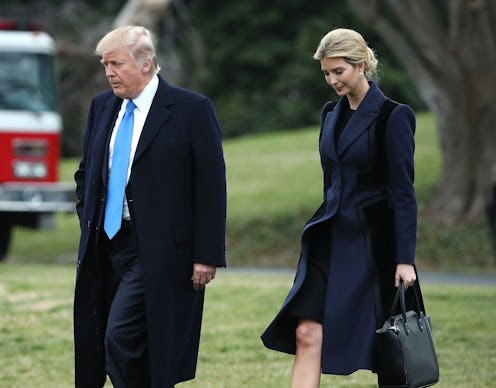News
Wallets Are Leading The New Trump Resistance

If you were watching the biggest game of the year on Sunday, you may have noticed a collection of ads for American brands got political during the Super Bowl — even if they weren't necessarily explicit about it. Though none went so far as to mention a political party or President Trump himself, there was an inclusive vibe to many spots that seemed to implicitly rebuke the president's anti-immigrant rhetoric and recent policies. These messages reverberated, even as many companies denied their political implications. For example, Budweiser released an ad showing the company's founder, Adolphus Busch, facing xenophobia as he comes to America as a German immigrant, but Budweiser has denied any political connotation or agenda. AirBnB and Google played ads showing a diverse group of people of multiple races and religions enjoying their products together.
These ads are only the latest in a series of signals coming from corporate America, showing that they're not going to go along with President Trump's agenda easily. Dozens of tech companies, including Apple, Google, and Facebook, filed an amicus brief in support of the state of Washington's case against the Trump administration's travel ban. Travis Kalanick, the CEO of Uber, left Trump's business advisory council after public outrage against his company for seeming to be working too closely with Trump.
That kind of outrage is unlikely to abate any time soon. There are activists working their hardest to make sure that it doesn't, and that this outrage is channeled into concrete actions that makes things even more fraught in the relationship between the business community and the President.
Before Trump even won the election, Shannon Coulter started Grab Your Wallet, a campaign of boycotts against products bearing the Trump name (notably, including Ivanka Trump's line) and stores that support them. "I was encountering the Trump name in some of my favorite retail environments," Coulter tells Bustle. "For a lot of women, they just don't want to see the name Trump while they're shopping. They have —many of them — an emotional visceral response to that."
The campaign to get Trump's products out of stores and people's money out of his family's pockets has spread like wildfire. According to Coulter, the site now gets hundreds of thousands of views on a daily basis, and the #GrabYourWallet hashtag has reached over 675 million users. And it appears that it may have had real results.
Just this month, Nordstrom dropped Ivanka Trump's clothing line from its stores. The company has stated the decision was based purely on sales, nothing political. However, Coulter believes it is a sign that the boycott efforts are working if fewer Ivanka Trump products are being purchased. Neiman Marcus dropped her jewelry line. "It feels a little bit like taking the cake away from Marie Antoinette," Coulter says.
"I think the reason it's taken off the way it has is because the Grab Your Wallet boycott is something that's really easy to do and something people can do every day," Coulter tells me. "It's given them back some small measure of control over their lives."
The Grab Your Wallet movement isn't the only one encouraging corporate resistance. The Sleeping Giants online movement has been focused on getting brands to pull advertising from Breitbart News. Acting mostly through tweets, it has convinced nearly a thousand brands to remove their advertisements from being selected through algorithms for the site, according the movement's founders.
In reaction to Trump's immigration executive order, Wall-Of-Us, a website helping motivated activists organize against Trump, has started a campaign to get CEOs of all 18 companies on Trump's business advisory council to make statements against the travel ban.
"Brand damage can be compelling enough," says Amelia Miazad, the founder of Wall-Of-Us. "The brand itself has economic value. It's not like a formal boycott has to occur. It will naturally occur."
When I spoke last week with Erica Chenoweth, an expert on nonviolent resistance movements, how they spread, and how they accomplish their goals, she highlighted the importance of increasing the cost of collaboration. "It's not really about making Trump change his mind about things," she says. "It's about other people — whether they're congresspeople, civil servants, economic elites, or others who are required to cooperate. It's making them not cooperate."
These corporate boycott and public relations movements are an attempt to put this idea into practice — forcing companies to understand that there could be problems for their bottom line if they side with Trump or even if they don't do enough to fight him.
"Companies are comprised of people," says Miazad. "When individuals within the companies have the right values and the companies have the right values, that's one of the best vehicles for change."